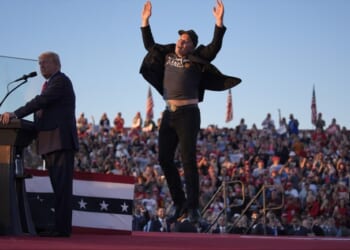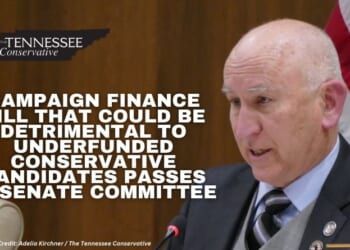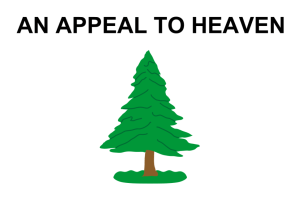WHEN firemen were bullied by their bosses into participating in a gay pride rally in Glasgow, a courageous few refused. Strathclyde Fire & Rescue insisted that the men distribute leaflets, presumably proclaiming itself as an inclusive employer, or assuring homosexual citizens that they would not be left inside a burning building. Nine men were sent on diversity training, and Brian Herbert was demoted (his punishment later revoked on appeal).
That was back in 2006, and quite shocking at the time, drawing plenty of media coverage. We can be sure that a large proportion of the workforce would not willingly have stood on the streets issuing gay propaganda to the public. They went along with the order, keeping their heads down. Some, including those who resisted, would have had conscientious objections, whether religious or by principle of rights and liberty.
There was nothing in the men’s employment contracts requiring such a task, which has no relevance to firefighting. Indeed, workers are protected in law from forced involvement in political activity: the European Convention of Human Rights (enshrined by the Human Rights Act 1998) and other legislation. Yet the management did it anyway.
I suspect that the firemen were targeted pour encourager les autres. The law may have been on their side, but as we have frequently observed, justice is not administered fairly. Indeed, the current government is led by a prime minister dubbed ‘Two-Tier Keir’. Sir Keir Starmer, former Director of Public Prosecutions, blatantly told judges to impose severe sentences on protesters following the murder of three girls in Southport, thereby interfering with judicial independence and the principle of ‘innocent until proved guilty’. Meanwhile Just Stop Oil roadblockers and BBC paedophiles are often let off, the former in tune with the official narrative on climate change, and the latter the government mouthpiece.
My first realisation that the law is applied very selectively was in the establishment refusal to accept the result of EU referendum in 2016. The matter went to the highest court in the land, where Baroness Hale was celebrated for finding against Boris Johnson’s proroguing of parliament, a move that Remainers thought would scupper Brexit. The corruption became much more apparent in the contrived covid pandemic. Care workers were sacked for refusing experimental injections which were claimed to be safe and effective but were actually useless in preventing respiratory infection and in some cases extremely harmful.
Employment tribunals have given little remedy for such workers, as the establishment story of a deadly contagion ended by a miraculous vaccine prevails. Bodily autonomy and religious beliefs were overridden at the time, and tribunals mostly continue to accept that employers were following law and the guidance of experts in sacking their workers.
Covid dogma is also maintained by professional regulators. Several doctors and nurses were issued with interim suspension orders. Unlike being suspended by an employer, which ends when a disciplinary process is completed, and a dismissed worker can find a job elsewhere, a regulatory suspension stops the practitioner from working anywhere. The investigation may take years, and there may eventually be no case to answer. The punishment is the process.
‘Law and the British regime’, an illuminating article by David McGrogan, explains how ‘the rule of law’ repeatedly emphasised by Starmer is really the application of legal powers to achieve political objectives. Ordinary people complaining about mass immigration? Use hate-crime and counter-terrorism to scare them into submission. Too much criticism or ridiculing of climate change or infectious disease policies? Use the Online Safety Act to banish ‘dangerous disinformation’.
In his controversial speech at the security conference in Munich last week, US vice-president J D Vance raised the case of Adam Smith-Connor, who was arrested for silent prayer outside a Bournemouth abortion clinic. Vance told the assembled Western leaders that the biggest threat to their citizens is not Russia, but their own governments. Hundreds of people know this only too well, imprisoned for Facebook posts or exercising their right to peaceful protest. The existence of ‘non-crime hate incidents’ is a stain on the character of our country.
McGrogan argues that the law is deployed by the powers-that-be, rather than allowed to operate as a fair and just system beyond ministerial control. The governing elite is wielding the totalitarian tool of arbitrariness. Nobody knows whether their tweets or placards cross a line of criminal offence, because the very concept of offence is vague and depends on relative favouring of any persons involved. Take, for example, my experience of police intimidation for holding a placard about women’s safety at a rally against a migrant camp in my town.
Unlike in the US, we lack the constitutional rights for freedom of speech, democracy and equality before the law. Enlightenment values have been deliberately undermined. But we are coming to a crunch, as more and more citizens realise that their government is not working for them, but against them.
As McGrogan concludes: The big question is whether in the aftermath of inevitable, generalised collapse, a more sane, humane, moral order can be reconstituted through a republican model of the rule of law. The way things are going, that question may require answering more rapidly than any of us thought.










